Physics
with a Year in Industry
Unlock your future with physics: open up exciting career options in cyber security, medical physics or the space industry.
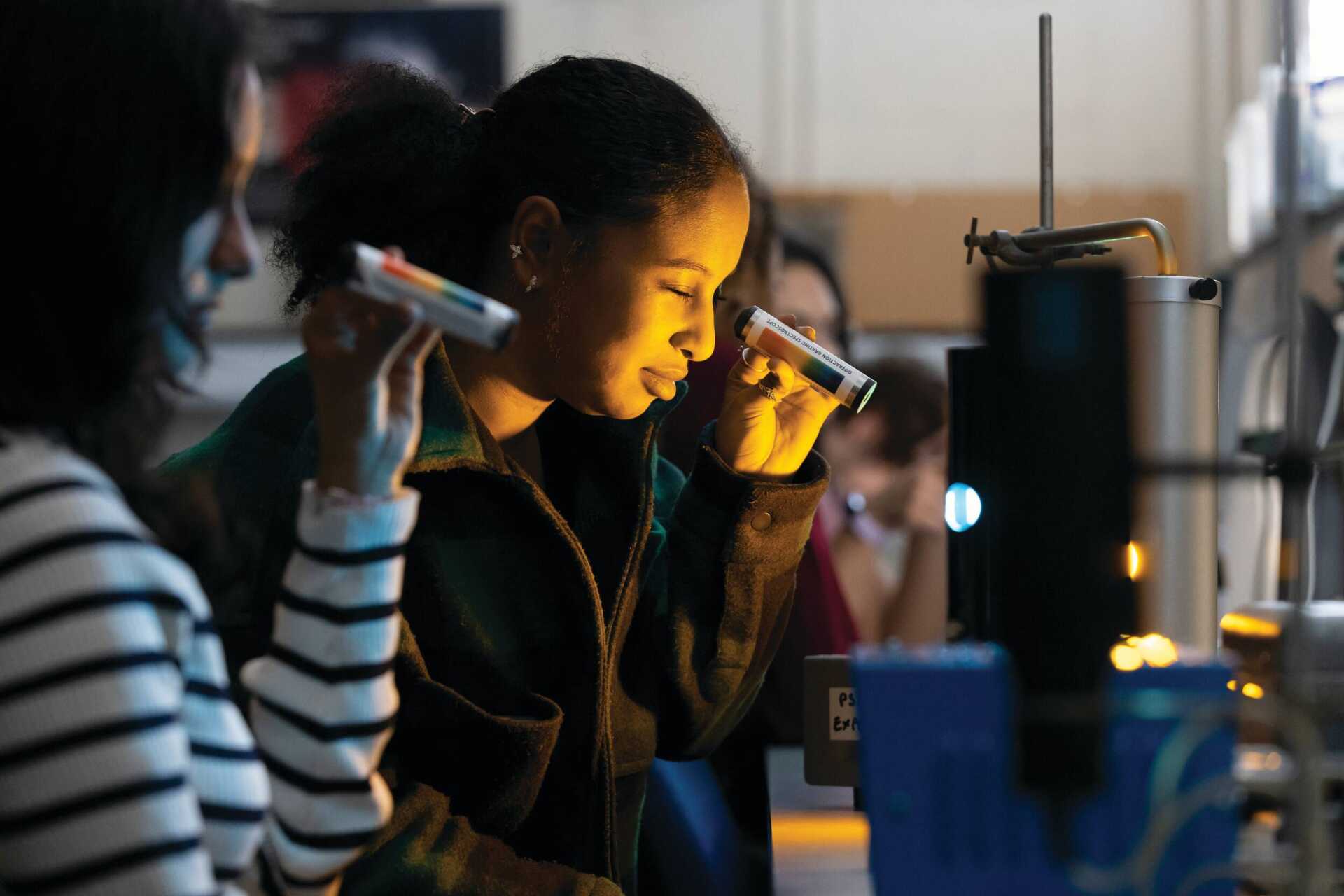
Unlock your future with physics: open up exciting career options in cyber security, medical physics or the space industry.
Physics gives you the tools to understand our world at a fundamental level, from the smallest sub-atomic particles to the large-scale structure of the universe. You'll discover the world of quantum mechanics, relativity, electromagnetism and condensed matter and learn how physics enables breakthroughs in areas from materials science to quantum computing and medical imaging.
You'll also develop the transferable skills to open up a world of job opportunities, leading to careers in research, aeronautics, engineering, medical physics, defence, teaching, finance and data analytics.
Combining your degree with a Professional Placement year will allow you to gain valuable work experience and discover how physics is applied in the real world. Your placement can take place in the UK or abroad and many pay a salary.
If you don’t have a science background or don’t meet our entry requirements, you can take our foundation year.
This course is fully accredited by the Institute of Physics.
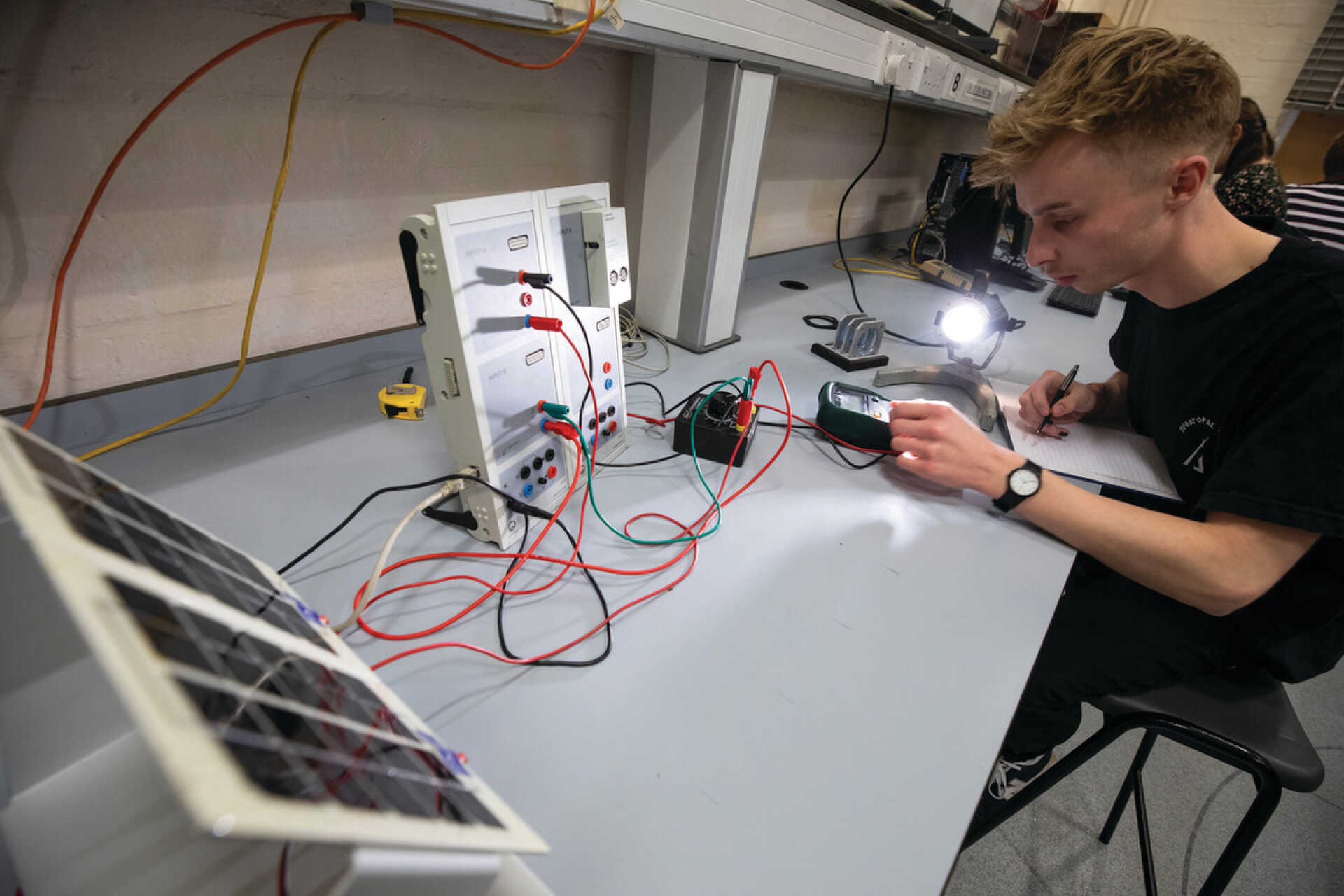
Your Physics degree opens the door to lots of exciting careers; taking a Year in Industry helps you discover some of those options.
Our dedicated Careers and Placements Team are here to help you develop employability skills and confidence.
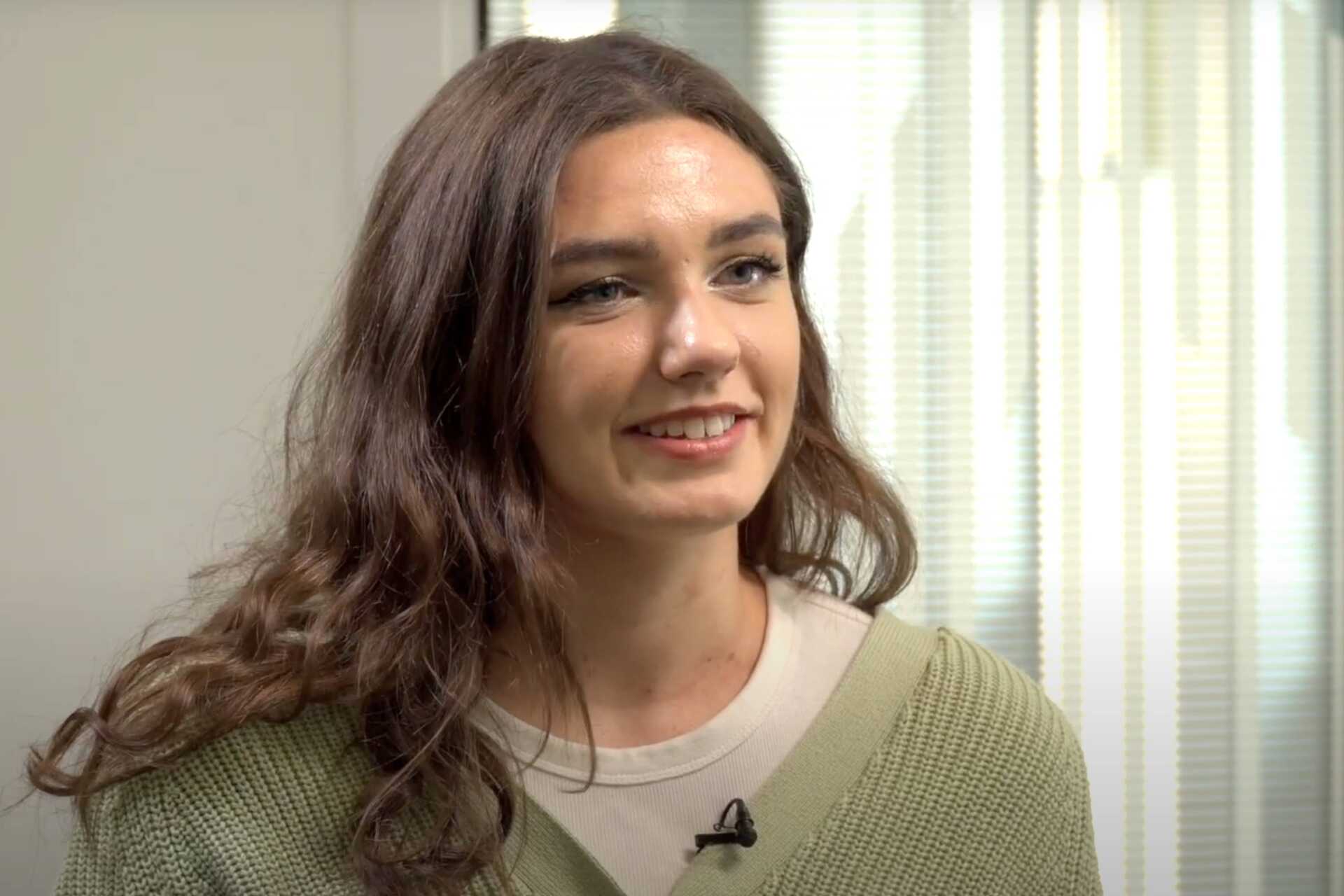
Exploring all areas of physics was important to Lucy Abbott, which is why she chose to study at Kent – that and the friendly atmosphere.
You'll discover the latest developments in areas such as quantum materials and medical imaging from innovative teachers who are also active researchers.
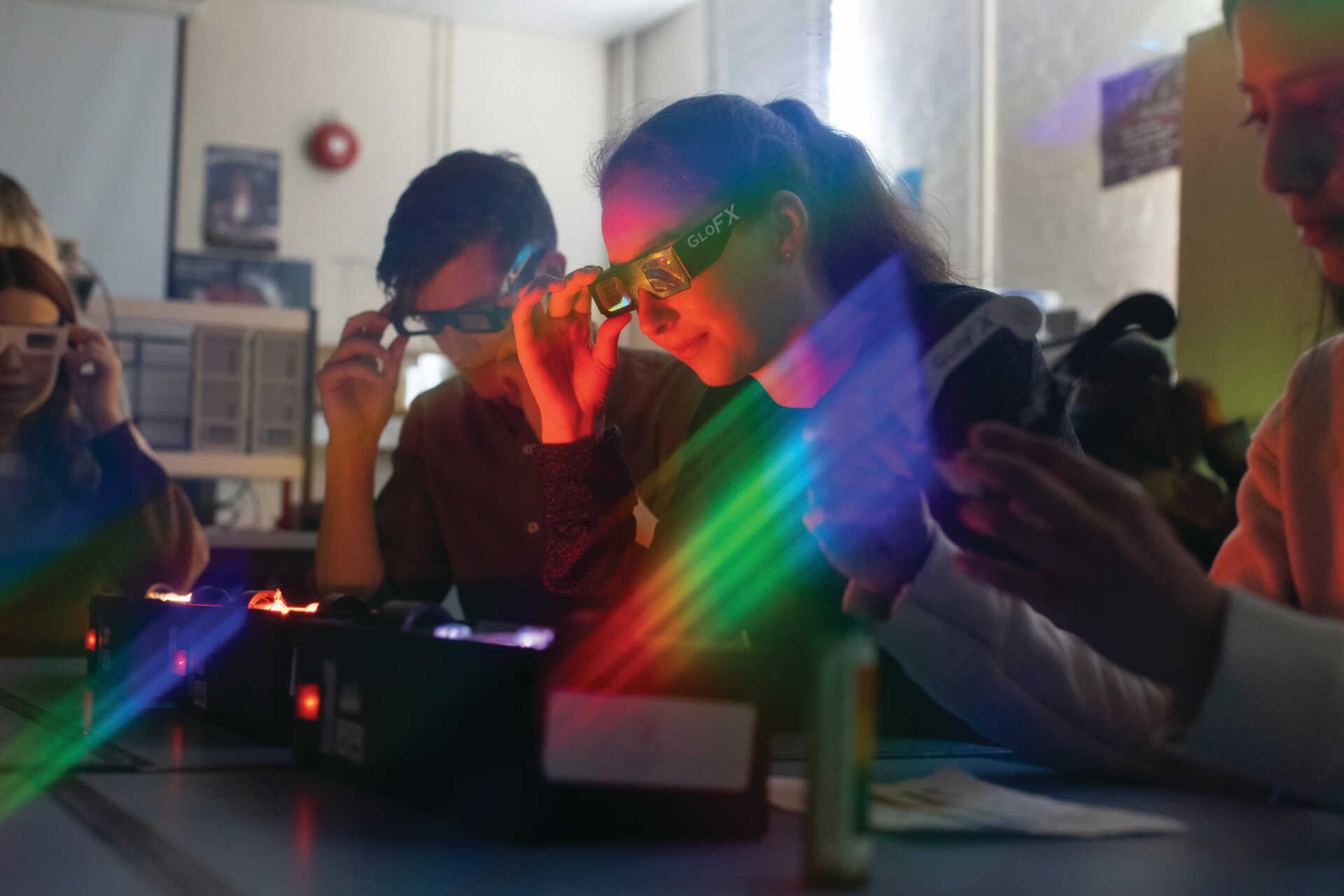
You'll use newly-refurbished physics and astronomy labs, a photonics centre and the Beacon Observatory with optical telescope.
Our typical offer levels are listed below and include indicative contextual offers. If you hold alternative qualifications just get in touch and we'll be glad to discuss these with you.
ABB, including A level Mathematics at B (not Use of Mathematics)
The University will consider applicants holding/studying BTEC Extended National Diploma Qualifications (QCF; NQF;OCR) in a relevant Science or Engineering subject at 180 credits or more, on a case by case basis. Please contact us via the enquiries tab for further advice on your individual circumstances.
A typical offer would be to achieve Distinction, Merit, Merit.
128 tariff points - typically H5, H6, H6 including HL Maths/Maths Method or HL Mathematics: Analysis and Approaches at 5 or SL Maths/Maths Methods at 6 (not Maths Studies/SL Maths: Applications & Interpretations)
N/A
The University will consider applicants holding T level qualifications in subjects closely aligned to the course.
The University welcomes applications from Access to Higher Education Diploma candidates for consideration. A typical offer would be to obtain Access to HE Diploma with 45 Credits at level 3 with 30 credits at Distinction and 15 credits at Merit. A Science Access programme including Maths and Physics credits at Level 3 would be required.
To ensure you make rapid progress in physics, you need to understand mathematics. You’ll undertake an in-depth study of calculus, complex numbers and vector mathematics, as well as statistical methods for data analysis.
Through the calculus component, you will delve into the fundamental principles of differentiation and integration, emphasising their relevance in physics applications. This foundation will pave the way for mastering key techniques directly applicable to physics problems and scenarios. Additionally, you will be introduced to scientific programming in Python, expanding your horizons in the application of computer and IT packages used to build mathematical models of physical behaviour.
This gives you the skills, knowledge and confidence you need to go on in your degree and produce your best work both now, and later in your career.
You’ll dive into all the important topics in astronomy, optics and special relativity using straightforward mathematics to help you master the concepts.
You’ll study light focussing on the key principles of geometrical optics, and how they allow us to design and understand instruments including astronomical telescopes. This will lead into an exploration of important topics in modern astronomy, such as determining distances and observational properties of stars, beginning with our own solar system and extending to objects at the very limits of the observable universe.
You’ll also receive an introduction to the fascinating subject of special relativity, encountering concepts such as space-time, time dilation and the relativity of simultaneity. After completing this module, you’ll be well-prepared for more advanced topics in astrophysics, optics and theoretical physics.
Building on your knowledge developed through ‘Mathematics I’ you’ll explore key mathematical techniques involving multiple independent variables. These include the topics of differential equations, multivariate calculus, non-Cartesian coordinates, and vector calculus that are needed for further study in physics.
Use of numerical approaches towards mathematical problem-solving is also introduced, demonstrating use of computational algorithms and techniques to solve diverse problems and graphically present and interpret data. This further exploration of mathematics gives you the skills you need to explore pressing questions throughout the universe and sets you up for further study, and later, your career.
This is your chance to get hands-on through a series of experiments giving you experience in using laboratory apparatus and equipment. This will also teach you how to accurately record and analyse data in laboratory notebooks and write scientific laboratory reports. You’ll carry out experiments covering subjects found in the Physics degree program and are run parallel with Computing Skills workshops in which you will be introduced to the fundamentals of using programming/scripting, and its application to analyse and report data from their experiments.
By completing this module, you’ll become a competent user of experimental, computational and communication tools, understanding the inherent uncertainties of empirical science and what this means in relation to scientific findings, and knowing the standards expected of you in reporting scientific results, in readiness for more advanced laboratory work.
Embark on an exciting and comprehensive journey into the intricate world of motion, energy, and momenta and thoroughly understand the fundamental laws of motion, including the mathematical principles underpinning them.
Explore concepts such as momentum, energy, rotational motion, angular momentum, and gravitational forces, and gain an appreciation of the mathematical description of harmonic oscillations and learn how to apply them to real-world scenarios. In addition to these core topics, you’ll cover a range of related subjects essential for understanding key concepts in physics and how they underpin natural phenomena. Through delving into associated areas such as static equilibrium, elastic properties of objects, and fluid mechanics, you’ll gain a deeper understanding of the physical world and make connections between seemingly disparate phenomena.
With a solid foundation in these concepts, you’ll be well-equipped to launch careers in engineering, technology, and other fields that require a strong understanding of fundamental physics principles.
You’ll explore waves, fields and the quantum world through two parts, giving you the chance to make rapid progress and get the knowledge you need for further investigation and exploration.
The first part of the module introduces you to electric fields, magnetic fields, and electro-magnetic phenomena including the behaviour of electric circuits and electromagnetic radiation. This will culminate in a fundamental, classical understanding of light as an electromagnetic wave, connecting what you have learned about optics with your knowledge of waves from earlier modules.
The second part of the module breaks out of the mould of Classical Physics to introduce its successor, Quantum Physics, according to which light can behave as discrete units. You’ll also explore how a new type of wave, called a "wave function", can be used to describe the behaviour not of light, but of particles. This is what will set you up for a fuller exploration of the quantum world later in your studies, opening up a whole universe of possibilities.
Mathematical techniques are essential for solving problems in physics and related fields. You will gain comprehensive grounding in the mathematical methods necessary for solving differential equations, understanding special functions, and conducting harmonic analysis. You’ll also get a grounding in numerical methods and asymptotic analysis, preparing students for the analytical challenges they will encounter in their studies and professional lives.
Building on a strong mathematical foundation for further study and research, the skills you develop will not only benefit you academically but also enhance your employability, preparing you for technical roles in research, engineering, data analysis, and beyond, where rigorous mathematical reasoning and problem-solving abilities are highly valued by employers.
Modern science is a collaborative effort, requiring physicists to work in teams of varying sizes, and to communicate their results to a wide range of audiences. We ensure you will develop your ability to conduct complex investigations as a team, and to disseminate your outcomes.
You’ll do this through producing more comprehensive written reports and using computational scripts to analyse and visualise data. A key focus is on analysis of experimental uncertainties and comparison with underlying physical theories. Your team-working skills will be developed through a group project focused on a real, open-ended research topic, with problems chosen from a list drawn from the research interests of academics, problems set by industry, and areas such as physics education and outreach.
The skills developed in this module will help prepare you for more in-depth investigations later in your degree and for collaborative working in your future career.
Dive into the fascinating world of quantum mechanics, where you will develop a comprehensive understanding of wave functions, the Schrödinger equation, and quantum numbers, essential for describing the properties of key physical systems.
This module introduces you to critical terminology and mathematical concepts fundamental to quantum mechanics, such as eigenstates, eigenvalues, and expectation values. You will explore the Schrödinger equation through various important systems, including two-state systems, particles in simple potentials, and the simple harmonic oscillator. You will also learn how to use the Schrödinger equation in different coordinate systems to understand the concept of angular momentum in quantum mechanics.
In the realm of atomic physics, you will investigate solutions for atoms, with a particular focus on the hydrogen atom, and study their interactions with electromagnetic radiation. These methods extend to the study of molecules and nuclei, providing a robust framework for understanding a wide range of physical phenomena.
This module offers a detailed and accurate portrayal of atomic structures, which are the fundamental building blocks of numerous physical processes and phenomena.
Electromagnetism and Relativity are two fundamental classical theories in Physics. You'll be introduced to a range of important laws and principles that lay the foundation for studies in these fields. You'll develop an understanding of magnetic and electric fields and how to apply Maxwell’s laws to describe all phenomena involving electromagnetic waves (from radio waves to visible light, X-rays and gamma rays).
Once the propagation of light has been discussed and understood in the context of Electromagnetism, you will study the consequences of the constant velocity of light in the context of Einstein’s theory of Special Relativity. The theory will be applied to understanding concepts such as time dilation and event horizon.
You'll acquire a deeper understanding of highly formalised theories, and how these are powerful tools to solve a diverse range of problems. You'll also develop your skills for formal reasoning and fundamental mathematical tools (vector fields in particular), applying these to solve problems in the context of the systems studied in the module and will contribute to the skills set of a physicist for your future career.
Machine learning expertise is a critical need in fields ranging from medicine and biology to chemistry and physics. You'll benefit from hands-on learning to meet the demands of industries that increasingly rely on machine learning for data analysis, forecasting and classification tasks.
Building on key Python programming skills, you'll manipulate authentic datasets, preprocess data for analysis, select suitable algorithms, and interpret outcomes. This involves formulating hypotheses, devising experimental setups to validate hypotheses, and employing statistical and machine learning techniques to analyse results.
You'll be introduced to essential concepts including model training/validation/testing, underfitting and overfitting. Upon completion of the module, you'll have the practical skills necessary to apply modern machine learning techniques across various natural science disciplines.
Build on the introduction to astronomy taught in earlier stages. You will enhance your knowledge of astrophysics through the study of the theory, formalism and fundamental principles, developing a rigorous grounding in observational, computational and theoretical aspects of astrophysics.
In particular, you will study topics such as properties of galaxies and stars, the detection of planets outside the solar system, and CCD cameras. There is the opportunity to take part in observations with the Beacon Observatory. This deepening of your knowledge and practical, hands-on experience in astronomy is valuable for you to kick-start a career in the field.
How can we use space to benefit our society on Earth and to explore our solar system and beyond? On this module you'll discuss the design and operations of spacecraft, including satellites, to explore answers to these questions. We'll introduce the harsh environment of space, the hazards posed to spacecraft, and how we design spacecraft to overcome these challenges. You'll also develop your understanding of the major subsystems of a spacecraft through the study of the theory, formalism and fundamental principles, as well as the framework to understand spacecraft trajectories and orbits.
As humanity seeks to both explore and establish bases beyond Earth you'll consider the additional scientific and technical challenges of crewed space flight and establishing extraterrestrial habitats. The course also discusses how space missions are designed, funded and managed. Join the next generation of physicists looking to journey further into the cosmos and unlock the secrets of the universe.
You have the option to add a year in industry to this course. We already know you have the confidence and commitment to thrive in the workplace and kick-start your career. This is your chance to prove it, to yourself and to employers.
When should I start looking? In the summer of your first year; placements must be secured by 31 August in your second year.
Where can I get help finding a placement? Book an appointment with a placement adviser via the careers service.
Will I get paid? Most of our placements are paid.
Do I have to pay tuition fees? Yes, you’ll pay a substantially reduced fee, currently £1,850, which for UK students is covered by Student Finance.
Where can I get visa advice if I’m an international student? Kent Union can help with any visa queries for your Year in Industry.
Does the University keep in touch? You receive four-weekly check-in emails, a visit from the team every three months and you can reach out to us any time by email or phone.
Do I work for a full year? The minimum requirement for an industrial placement is 44 weeks.
What could you do in a year?My year in industry couldn’t have gone better. I secured a role at IBM, working in their sports and entertainment department – it was perfect for meTom Tillin Find out more
All modern technologies rely on the use of light in some way or another, which makes understanding light absolutely essential. This module provides you with an immersive experience, allowing you to discover fundamental and contemporary concepts that shape our understanding of how light interacts with matter. You'll explore the practical applications of optics and photonics in various fields, such as telecommunications, medicine, manufacturing, and computing, giving you experience aligned with a range of potential careers.
Throughout the module, you'll acquire knowledge and skills in designing and analysing optical systems, becoming proficient in using tools such as lasers and fibre optics and enhancing your problem-solving skills. In doing so, you'll understand how your developing expertise can be applied in practice, including in multi-disciplinary or multi-professional contexts, to make a positive difference to the world around you.
Explore the classic theory of thermodynamics and how the thermal properties of physical objects can be described in terms of their microscopic properties through the application of statistical mechanics. You'll learn the three laws of thermodynamics and how to use them to understand physical phenomena, such as the conversion of heat into work in an engine or the cooling cycle in a refrigerator.
You'll learn how to derive measurable, bulk properties such as temperature, heat capacity, entropy or magnetisation from the behaviour of the microscopic components in a gas or a paramagnet. Statistical mechanics bridges the gap between the microscopic and macroscopic description of the physical world; you'll apply theoretical principles, alongside a range of mathematical skills, to contemporary issues such as how heat pumps work, the effect of temperature on defects in a crystalline solid, heat capacity due to electrons in a metal, to address real-world problems and potential solutions.
Explore the constituents of matter and how the structured arrangement of atoms in a solid gives rise to their properties. You'll start by looking at the structure and properties of the nucleus, as well as its stability and fission and fusion processes. You'll then study how the regular arrangement of atoms in a lattice gives rise to crystalline solids and proceed to investigate how the behaviour of electrons in crystals is responsible for many of the properties we find in the materials driving technology (such as metals, semiconductors, magnetic materials). The theoretical principles taught in the lectures, as well as a range of mathematical skills, will be applied to solving problems, including those related to electronics and optoelectronic devices.
Become more fluent and adept at solving and discussing general problems in Physics (and its related disciplines of mathematics and engineering). This includes the use of numerical approximations to solve problems, building on the programming skills already gained , complementing the analytical methods that students have been trained to use in earlier stages.
There is no formal curriculum for this course, which uses and demands only physical and mathematical concepts with which students at this level are already familiar.
Problems are presented and solutions discussed in small seminar groups, covering topics spanning several areas in the undergraduate physics curriculum (Mechanics and statics, thermodynamics, and optics, etc), as well as those involving the application of formal logic and reasoning, simple probability, statistics, estimation and linear mathematics.
You'll develop your ability to think flexibily, enhancing your readiness to find analytical or computational solutions to many professional challenges and contemporary issues.
Gain skills in planning, executing, and analysing laboratory experiments. There will be extensive use of laboratory notebooks, comprehensive data analysis and a greater emphasis on understanding the relation to theory. In addition, the module enhances students’ ability to prepare the more detailed laboratory reports. The module will include a number of small experiments plus a longer (project) experiment. The experiments might use apparatus or be theoretical.
Medical physics is an essential component of modern healthcare, supporting the diagnosis and treatment of a wide range of diseases. You’ll learn specialist medical applications of physics, including a focus on the practical aspects relevant to professional practice.
You'll explore a range of topics, offering a well-rounded contemporary overview of the field, with emphasis on the core principles of medical imaging, radiation therapy and radiation safety and their role in dealing with complex clinical challenges. The growing field of optical techniques in medicine is also covered, linking with Kent’s major research strengths in this area. Benefit from a significant contribution from a professional medical physicist, giving you insights into how medical physics is practiced and potential careers in hospital physics where can bring your knowledge from learning in a cutting edge research environment to industry.
Quantum technologies are currently being developed that will have a significant impact on the world we live in.
You’ll study two particularly promising quantum technologies: quantum computation, and quantum cryptography. You’ll gain an overview of the mathematical and theoretical knowledge required to tackle these more specialised and advanced topics, before learning the basic principles of quantum algorithms and quantum cryptography.
You’ll gain an understanding of what these technologies can and cannot do, where these technologies are heading, and what the extent of their impact on our society may be.
Teaching is by lectures, practical classes, tutorials and workshops. You have an average of nine one-hour lectures, one or two days of practical or project work and a number of workshops each week. The practical modules include specific study skills in Physics and general communication skills.
A mix of approaches will be employed to measure accomplishment in subject knowledge, problem-solving, practical and communications skills.
Please note that there are degree thresholds at stage 1 that you will be required to pass in order to continue onto the next stages.
For a student studying full time, each academic year of the programme will comprise 1200 learning hours which include both direct contact hours and private study hours. The precise breakdown of hours will be subject dependent and will vary according to modules.
Methods of assessment will vary according to subject specialism and individual modules.
Please refer to the individual module details under Course Structure.
For course aims and learning outcomes please see the course specification.
You’ll graduate with an excellent grounding in scientific knowledge and extensive laboratory experience, as well as a toolbox of transferable skills highly sought after by employers. These include excellent communication and problem-solving skills; analytical thinking; effective time management; and the ability to work independently or as part of a team. Typical graduate destinations include:
Read some of their stories, and find out about the range of support and extra opportunities available to further your career potential.
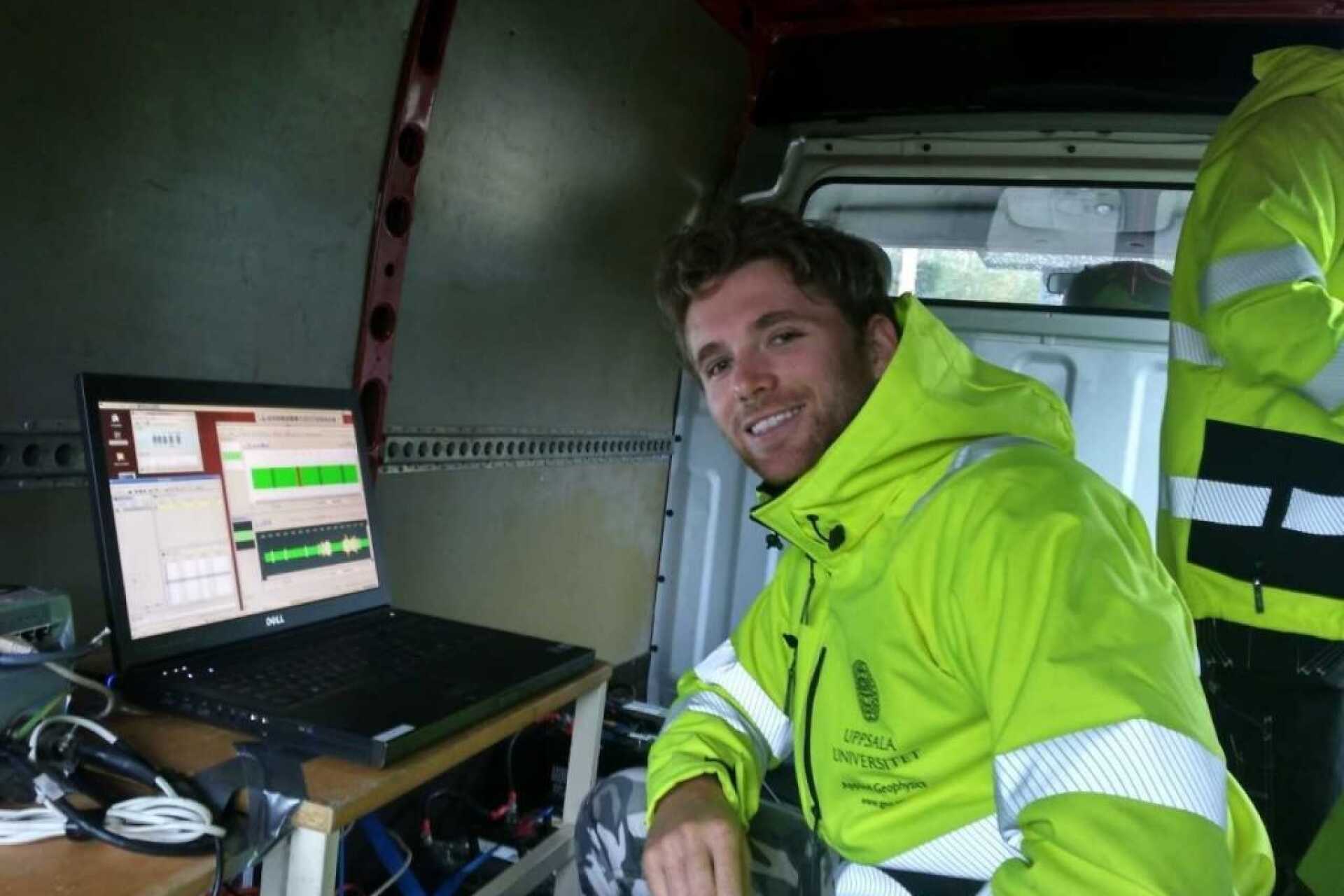
The University will assess your fee status as part of the application process. If you are uncertain about your fee status you may wish to seek advice from UKCISA before applying.
For details of when and how to pay fees and charges, please see our Student Finance Guide.
Fees for undergraduate students are £1,900.
Fees for undergraduate students are £1,430.
Students studying abroad for less than one academic year will pay full fees according to their fee status.
Students will require regular access to a desktop computer/laptop with an internet connection to use the University of Kent’s online resources and systems. Please see information about the minimum computer requirements for study.
There may be additional costs associated with the Year in Industry such as travel or accommodation, which will need to be covered by the student. Please see Careers and Employability webpages for more information.
Find out more about accommodation and living costs, plus general additional costs that you may pay when studying at Kent.
Kent offers generous financial support schemes to assist eligible undergraduate students during their studies. See our funding page for more details.

We have a range of subject-specific awards and scholarships for academic, sporting and musical achievement.
We welcome applications from students all around the world with a wide range of international qualifications.

Student Life

Powered by progress
Kent has climbed 12 places to reach the top 40 in The Times Good University Guide 2025.
Kent Sport
Kent has risen 11 places in THE’s REF 2021 ranking, confirming us as a leading research university.

An unmissable part of your student experience.